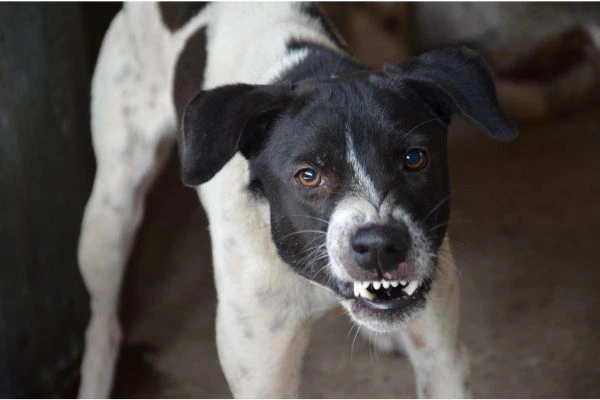Dogs are blessed with amazing olfactory senses.
When trained well, they can smell the gas leaks before they even happen. But certain smells can agitate them or irritate them.
It is better to avoid these smells or keep your canid away.
This article contains a list of possible smells that your dog will hate.
1. Citrus Scents (Lemon, Orange, Grapefruit)
Citrus fruits like lemon, lime, and orange may smell fresh to humans, but to dogs, they’re overpowering and unpleasant. The strong, acidic nature of citrus oils can irritate their sensitive noses.
Some dogs will immediately back away from citrus peels or citrus-scented cleaners. Essential oils derived from citrus can be particularly strong and even toxic when ingested.
While citrus is sometimes used in dog-repellent sprays, it can also cause stress or discomfort in your pet. Avoid using citrus-scented products near their bedding or toys.
Even air fresheners with citrus notes can make your dog uneasy. Watch for signs like sneezing or leaving the room.
2. Vinegar
Vinegar’s sharp, sour smell is often used in cleaning solutions, but it’s a big no-no for your dog’s nose. The acetic acid in vinegar is especially intense for them and can lead to avoidance behavior.
While not harmful in small amounts, the smell can linger on surfaces and drive dogs away from their favorite resting spots. Using vinegar to clean pet areas might backfire by making those spaces feel unwelcoming.
Dogs will often sniff once and quickly turn away. Though vinegar is a popular DIY pet deterrent, it should be used sparingly and never around food or water bowls. If your dog starts avoiding certain rooms, check for vinegar residue. Their noses pick up far more than we realize.
See Also:
3. Eucalyptus
Eucalyptus may be loved for its refreshing and decongesting properties, but for dogs, it’s highly irritating. The potent oils from eucalyptus leaves are often used in candles, sprays, and essential oil diffusers.
Even a whiff can overwhelm your dog’s senses and may cause respiratory discomfort. Ingestion can also be toxic, so eucalyptus should always be kept out of reach. Dogs tend to avoid areas where eucalyptus oil is being diffused or applied.
Even natural flea repellents sometimes contain eucalyptus, which may stress sensitive dogs. Look for signs of agitation, sneezing, or sudden withdrawal if this scent is present. Choose pet-safe alternatives instead.
4. Spicy Peppers (Chili, Cayenne, Black Pepper)
Spicy substances like cayenne or chili powder have a strong, stinging scent that irritates a dog’s nose and throat. Sprinkling these spices around gardens or furniture is a common method to deter dogs—but it’s not kind.
Even the airborne particles from crushed pepper can cause sneezing, watering eyes, and nasal discomfort. Dogs might paw at their face or flee the area quickly. Spicy smells can also linger in the air or on fabrics, making spaces feel hostile to dogs.
Repeated exposure can lead to anxiety or even skin irritation. While these scents aren’t usually dangerous, they are unpleasant. It’s better to use positive training instead of pepper deterrents.
5. Strong Perfumes and Colognes
What smells luxurious to us can be downright nauseating to a dog. Perfumes, colognes, and scented body sprays contain concentrated chemicals and alcohol that overload a dog’s sense of smell.
A dog might avoid cuddling after you’ve applied perfume or seem agitated around guests wearing strong fragrances. Some scents can even cause sneezing fits or make your dog pace nervously.
Never spray perfume on your dog—it’s not only overwhelming, but potentially harmful. Dogs depend on natural scents for bonding, so masking their scent with perfume disrupts their world. If your dog starts acting distant, it might be your scent—not their mood.
6. Household Cleaners and Bleach
Many household cleaners—especially bleach, ammonia, and phenol-based products—are overpowering for dogs. These chemicals can irritate their noses, eyes, and airways.
Dogs often leave the room or act restless when exposed to strong cleaning agents. Even after cleaning, the residual smell can make a space feel uninhabitable to them.
Prolonged exposure might lead to coughing, gagging, or even illness. If a surface feels clean to you but your dog avoids it, chances are they still smell the chemicals.
Always ventilate rooms well after using harsh products. Consider switching to dog-safe or unscented alternatives.
7. Alcohol (Rubbing Alcohol, Sanitizers)
Rubbing alcohol and hand sanitizers release a sharp, astringent scent that dogs strongly dislike. The ethanol and isopropyl compounds are especially harsh on a dog’s nose and can even cause dizziness or nausea.
Dogs may whine or retreat when you use sanitizer near them. Spraying alcohol-based products on furniture or floors may lead to avoidance behavior. Never use alcohol-based products to clean your pet’s items—it can cause more harm than help.
If your dog sniffs your hands and then recoils or licks their nose rapidly, alcohol might be to blame. Always allow alcohol-based products to dry completely before interacting with your dog.
8. Mothballs
Mothballs are toxic and extremely repellent to dogs due to their pungent chemical odor. They contain naphthalene or paradichlorobenzene, both of which are dangerous if inhaled or ingested.
Dogs will instinctively avoid areas with mothballs—but curiosity can still lead to accidents. Even just sniffing them closely can cause drooling, confusion, or nausea. Mothballs should never be used anywhere your dog can access.
Replace them with pet-safe alternatives like cedarwood blocks. If your dog comes into contact with mothballs, contact a vet immediately.
9. Nail Polish, Paint, and Acetone
Solvents like nail polish remover, wet paint, and varnish emit potent fumes that are highly aversive to dogs. These chemicals can burn the sensitive tissues inside a dog’s nose and cause immediate discomfort.
Dogs may whimper, sneeze, or pace near freshly painted areas. Long-term exposure in poorly ventilated spaces can even lead to headaches or breathing problems. Never paint near your dog or use acetone-based products where they sleep or eat.
If you’ve been painting or doing your nails, wash your hands thoroughly before petting your dog. They’ll thank you with a happy nuzzle instead of a sneeze.
Dogs can smell 100,000 times better than humans.
They are sensitive to smell.
It is wise to keep it away from them to avoid stress.

Nikita Rout is a passionate content writer at HowItSee.com, where she explores the wonders of animals, nature, and the curious questions that spark our imagination. With a love for research and a knack for simplifying complex topics, she brings clarity and creativity to every article she writes. When she’s not writing, you’ll likely find her reading about animal behavior or coming up with unique pet name ideas.

